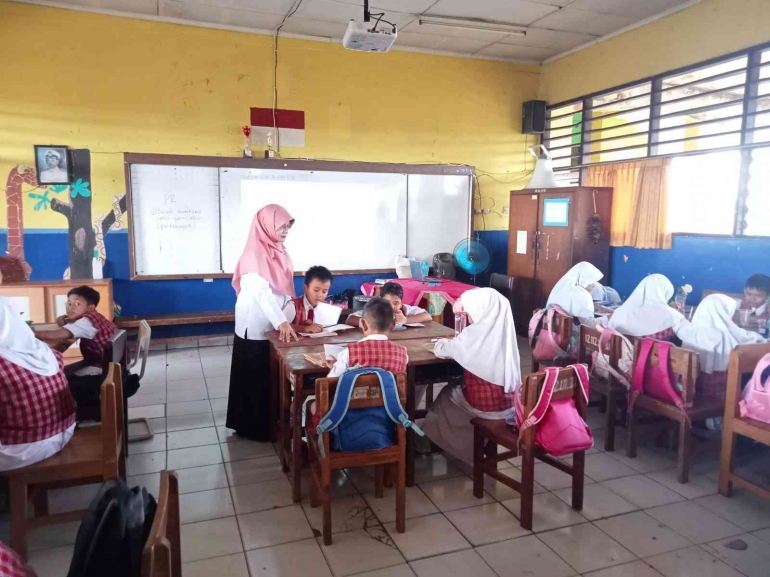Jakarta, July 24, 2023 - Inclusive Education is an education delivery system that provides opportunities for all students who have abnormalities and have the potential for intelligence and/or special talents to attend education or learning in an educational environment together with students in general. This is because every child deserves a proper education as a basic service that must be provided by the state.
Minister of National Education Regulation (Permendiknas) No. 70 of 2009 on Inclusive Education for Learners with Disabilities and Potential for Special Intelligence and/or Talent. Permendiknas No 70 of 2009 requires that district/city governments designate at least one primary school and one junior secondary school in each sub-district as education units that provide inclusive education that must accept students with special needs.
The Ministry of Education and Culture hopes that the Inclusive Education Working Group Team can continue to promote the importance of special education in their respective regions.
"It is not necessary for the district or city to declare itself as an inclusive area. The important thing is to ensure that in every sub-district there is an inclusive school," said the Director of Special Education Development, Mr. Sanusi, at the closing of the Inclusive Education Working Group Coordination Meeting in Surabaya, Sunday (07/14/2019).
Based on the Ministry of Education and Culture's monitoring, accessibility for inclusive children still needs to be improved, both in general schools and those that have organized inclusive education.
The Ministry of Education's regulation on inclusive education has certainly generated pros and cons, especially in public schools. Inclusive children who are in public schools have different levels of intelligence, such as thinking delays, mental disabilities, and syndromes.
"Actually, if for the inclusive needs of children who are limited to learning delays, maybe it can still be done in public schools, because later the children will still be together in one class to do learning, but later they will be differentiated questions," said Mrs. Devi, one of the public elementary school teachers in East Jakarta.

Behind the obligation as a public school teacher who equalizes all students, of course, there are obstacles that are felt. Teachers are required to be able to educate inclusive children and maintain classroom conduciveness, while they lack experience in dealing with inclusive children.
"In my opinion, inclusive education is already good, but there needs to be supporting learning tools, while for teachers who do not have the basic ability to teach inclusive children, we are usually given special training (how to handle inclusive children), although only in theory. As for the practical implementation, we often experience obstacles," said Mrs. Devi.









